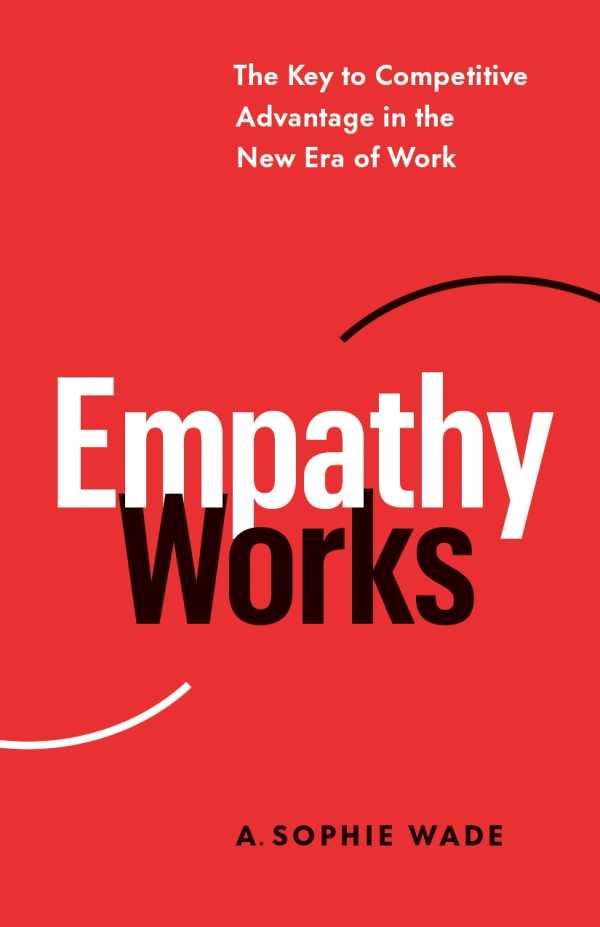
Empathy Works
The Key to Competitive Advantage in the New Era of Work
Empathy Works is a timely business guide with recommendations for achieving stability amid seismic changes in the working world.
A. Sophie Wade’s business guide Empathy Works assesses pandemic-accelerated workplace changes and specific ways for companies to gain a competitive edge.
First discussing the value of empathy at a critical juncture in the altered work world, the book then examines the catalyzed transformation of work since the spread of Covid-19 began. It discusses how people’s working lives changed, and contrasts empathy-infused selling and coaching methods versus older, commanding styles of leadership.
Wade uses compelling descriptions to capture the rapid, chaotic, and volatile shifts required during the advent of remote work, when people had to adapt their business practices and processes with speed. The book’s complementary examples are sympathetic, as with a description of the intense affront on psyches that resulted from the blurring of personal and professional boundaries. And its in-depth analysis of the resulting dramatic changes helps to explain accelerated approaches to digital business production.
The book also makes extensive use of interviews with CEOs, who reveal their firsthand experiences with making these adjustments. Such anecdotes ground the book’s recommendations about employing empathy well. There are illustrations of adopting video conferencing, reducing employee policy verbiage to respect employees’ understanding of dressing and working in appropriate ways, and responding to pressing needs, as with providing desks for people’s home offices, too. And data from one CEO survey reveals that any lack of trust between employees and employers ends up threatening a business’s growth; this leads to an expanded discussion of the importance of dependable interactions. Extending the findings further, three predictors are used to assess others’ trustworthiness. It’s a direct, practical application that’s supported by statistical evidence.
Highlighted boxes with empathy habits and takeaways appear at the end of each chapter, while bullet lists are used to summarize and reinforce the book’s key points, as about finding common ground and increasing transparency. Exercises arise throughout the book, as with prompts to practice facing differences of opinion,and notes on paying attention to people’s voices, language, and demeanor during online and in-person interactions. However, some such exercises are interrupted with points that break their momentum. Further, the book overuses leadership speak, including terms like “lean in” and “journey.” It also delays its definition of “empathy” too long, and its lighthearted illustrations contrast with its serious subject matter in jarring ways.
Analyzing pandemic-accelerated transformations, Empathy Works is a timely business guide with recommendations for achieving stability amid seismic changes in the working world.
Reviewed by
Andrea Hammer
Disclosure: This article is not an endorsement, but a review. The publisher of this book provided free copies of the book and paid a small fee to have their book reviewed by a professional reviewer. Foreword Reviews and Clarion Reviews make no guarantee that the publisher will receive a positive review. Foreword Magazine, Inc. is disclosing this in accordance with the Federal Trade Commission’s 16 CFR, Part 255.
